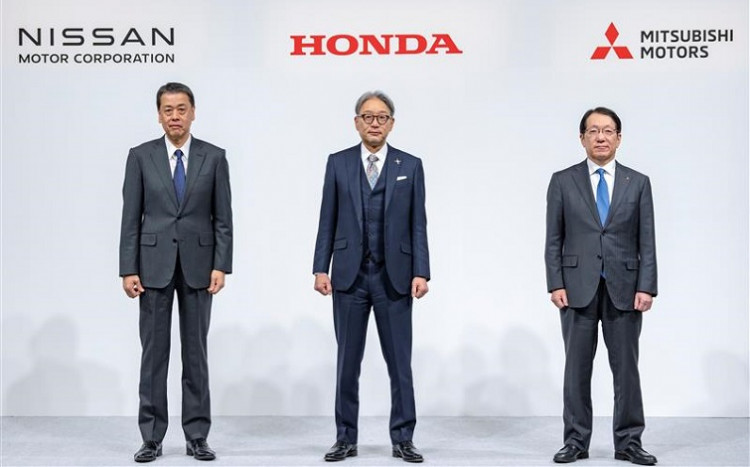Nissan and Honda, two of Japan's largest automakers, have officially entered discussions to merge, a move that could reshape the global automotive landscape. If finalized, the deal would establish the world's third-largest automaker by sales, trailing only Toyota and Volkswagen. The merger, announced Monday, aims to bolster the companies' ability to compete amid rising pressure from the electric vehicle (EV) revolution and intensifying competition from Chinese automakers.
The talks, set to conclude by June 2025, also include Mitsubishi Motors, a current partner of Nissan, which has been invited to join the merger. Nissan CEO Makoto Uchida described the negotiations as a "pivotal moment," emphasizing the potential to create innovations that neither company could achieve independently. "Together, we can create a unique way for customers to enjoy cars," Uchida stated.
The proposed merger comes as both automakers face mounting challenges in transitioning from gasoline-powered vehicles to EVs, a shift requiring substantial investment in new technology and infrastructure. Honda CEO Toshihiro Mibe highlighted the necessity of scale and collaboration to stay competitive in this evolving market. "A business integration would give the companies an edge that will not be possible under the current collaboration framework," Mibe explained during a press conference.
Under the proposed agreement, a holding company would oversee the combined operations of Honda and Nissan. While Honda would nominate most of the new entity's board members, both brands would retain their distinct identities. The merged group is projected to generate annual revenues of 30 trillion yen ($191.4 billion) and operating profits exceeding 3 trillion yen, with a combined market capitalization of nearly $54 billion.
The announcement has already impacted financial markets, with shares of Nissan, Honda, and Mitsubishi seeing notable gains in Asian trading. Analysts suggest the merger signals a broader trend toward consolidation within the automotive industry, as legacy manufacturers face stiff competition from Tesla, China's BYD, and other EV leaders. "Legacy auto companies that don't find new partners must face the prospect of being smaller companies with higher capital expenditures," noted Adam Jonas, an analyst at Morgan Stanley.
Nissan's financial struggles have added urgency to the merger talks. The automaker recently reported a 94% drop in profits for the six months ending September 2024 compared to the previous year. Facing rising debt and operational challenges, Nissan announced a 20% reduction in manufacturing output, resulting in 9,000 job cuts. Some analysts speculated that the company could face bankruptcy by 2026 without significant restructuring.
Despite its current difficulties, Nissan executives remain optimistic. Uchida emphasized that the merger is not a concession but a strategic move to ensure future growth. "After doing this turnaround action, we need to look at ultimate size and growth. This growth will be through partnerships," he said.
The integration talks have sparked mixed reactions among stakeholders. While some Honda shareholders expressed concerns that the merger could be seen as Honda rescuing its struggling peer, Mibe clarified that the deal depends on Nissan successfully completing its turnaround plan. "If Nissan and Honda fail to stand on their own feet, the business integration talks will not come to fruition," he remarked.
Industry experts see the merger as a potential lifeline for Nissan and a strategic move for Honda. Nissan has been "struggling in the market, at home, and doesn't have the right product lineup," said Peter Wells, professor at Cardiff Business School. "Whether this is the answer is another question, but something had to happen."
The merger's success could also influence Renault, which holds a 17% stake in Nissan and another 18.7% via a French trust. Renault shares dipped slightly in response to the announcement, underscoring the uncertainty surrounding the alliance's future dynamics.






